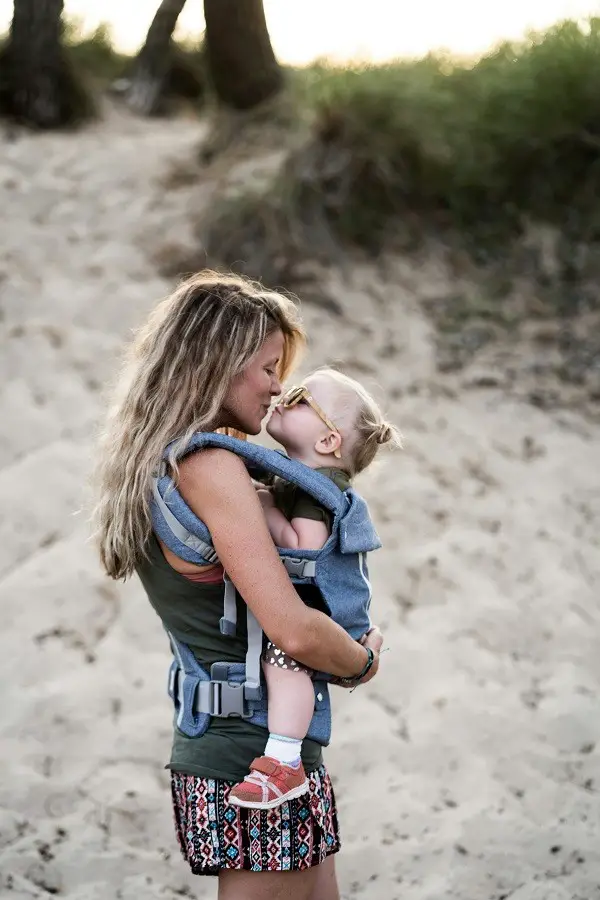Last Updated on January 6, 2025
Mastering mindful parenting through the power of patience enhances parent-child relationships and fosters emotional growth. Parenting is a joyful yet challenging journey that requires patience and mindfulness.
By learning to cultivate patience, parents can better navigate conflicts and nurture a positive environment for their children. The Power of Patience in parenting not only builds resilience in children but also strengthens family bonds. This article explores the significance of patience in mindful parenting and provides practical tips to help parents master this essential skill.
Embracing patience allows parents to respond calmly to their children’s needs, promote communication, and create a harmonious family dynamic. With patience as a guiding principle, parents can approach challenges with grace and understanding, fostering a nurturing and supportive environment for their children to thrive.
The Importance Of Patience

Cultivating Calmness
Practicing patience cultivates a sense of calmness in our interactions with our children.
Modeling Emotional Regulation
By being patient, we demonstrate healthy emotional regulation for our children to emulate.
Practicing Mindful Parenting
In mindfully parenting, focus on present moments to enhance connections.
Noticing small details can foster a deeper understanding.
Embracing Present-moment Awareness
- Focus on the now for stronger bonds
- Notice small details to show understanding
Show understanding and kindness to nurture your child’s self-esteem.
Embrace mistakes as opportunities for growth and learning.
Encouraging Self-compassion
- Kindness fosters self-esteem
- Mistakes are learning opportunities
Building Stronger Connections
One of the most beautiful aspects of mindful parenting is the opportunity it provides to build stronger connections with our children. By practicing patience and mindfulness, parents can foster deeper understanding and enhance empathy, creating a stronger bond rooted in mutual respect and trust.
Fostering Deeper Understanding
By embracing patience, parents can create an environment that encourages open communication and understanding. Taking the time to truly listen to our children and validate their experiences helps them feel seen and understood, laying the foundation for a deeper connection.
Enhancing Empathy
Through mindful parenting, we can teach our children the valuable skill of empathy. By modeling patience and understanding, we show them the importance of considering others’ perspectives and emotions, ultimately strengthening the empathy that forms the basis of meaningful connections.
Effective Communication Strategies
Effective communication lies at the heart of building strong relationships with our children. By using the right strategies, parents can create an environment that nurtures their child’s emotional well-being and fosters a deeper connection.
Active Listening Techniques
Active listening is an essential skill for effective communication with children. It involves giving your full attention to your child, not just hearing their words, but truly understanding their feelings and emotions. Here are some active listening techniques that can help you cultivate a supportive and empathetic atmosphere:
- Maintain eye contact with your child to show that you are fully engaged in the conversation.
- Use open-ended questions to encourage your child to express themselves more deeply.
- Reflect back on what your child has said to show that you are actively listening and understanding their perspective.
- Avoid interrupting or interjecting your own opinions, allowing your child to fully express themselves.
Constructive Feedback Approaches
Providing constructive feedback is a crucial aspect of effective communication in parenting. It helps children develop self-awareness, problem-solving skills, and fosters a growth mindset. Here are some approaches to give constructive feedback to your child:
- Focus on the behavior or action, rather than the child themselves. This helps detach the feedback from their identity.
- Be specific in your feedback, highlighting what they did well and areas where there is room for improvement.
- Offer suggestions or alternative strategies to encourage your child to think critically and find their own solutions.
- Always deliver feedback in a calm and supportive manner, ensuring that your child feels respected and understood.
Nurturing Resilience In Children

Raising resilient children is a crucial aspect of mindful parenting. Resilience equips children with the strength and adaptability to navigate life’s challenges. It instills in them a confident, problem-solving mindset that helps them triumph over adversity. As parents, we play a vital role in nurturing resilience in our children, guiding them as they develop the skills needed to face life’s ups and downs.
Teaching Problem-solving Skills
Teaching problem-solving skills is an essential part of fostering resilience in children. By empowering them to think critically and find solutions, we equip them with the tools necessary to handle difficult situations. Here are some strategies to help teach problem-solving skills:
- Encourage independence: Allow children to take charge of their decisions and experience the consequences, fostering a sense of responsibility.
- Break problems down: Teach children to break down big problems into smaller, more manageable parts.
- Brainstorming sessions: Engage children in brainstorming sessions where they can come up with various solutions to a given problem.
- Encourage reflection: Help children reflect on past experiences, encouraging them to learn from both their successes and failures.
Promoting Positive Coping Mechanisms
Equipping children with positive coping mechanisms is key to building resilience. It teaches them how to manage stress and bounce back from setbacks. Here are a few ways to promote positive coping mechanisms:
- Encourage open communication: Create a safe space for children to express their thoughts and emotions without fear of judgment.
- Teach relaxation techniques: Introduce breathing exercises or mindfulness practices to help children calm their minds during challenging moments.
- Develop a growth mindset: Instill in children the belief that their abilities and intelligence can improve with effort and perseverance.
- Encourage physical activity: Engage children in regular physical activities to help release stress and boost mood.
By teaching problem-solving skills and promoting positive coping mechanisms, we empower our children to become resilient individuals who can navigate life’s challenges with confidence. As mindful parents, our guidance and support play a crucial role in shaping their ability to adapt, learn, and grow.
Frequently Asked Questions
How Can Mindful Parenting Benefit My Child’s Development?
Mindful parenting can enhance your child’s emotional regulation, interpersonal skills, and overall well-being.
What Are The Key Principles Of Mindful Parenting?
Practicing presence, acceptance, non-judgment, patience, and self-compassion are key principles of mindful parenting.
How Can I Cultivate Patience As A Parent?
Cultivate patience by practicing deep breathing, using mindfulness techniques, and reframing challenging situations positively.
What Are Some Effective Strategies For Practicing Mindful Parenting?
Engage in active listening, set realistic expectations, practice self-care, use positive discipline, and create a nurturing environment.
Can Mindful Parenting Help Reduce Parental Stress?
Yes, by being present, managing emotions, and adopting a compassionate approach, mindful parenting can significantly reduce parental stress.
Conclusion
In nurturing mindful parenting, patience plays a crucial role. By embracing patience, fostering deep connections with our children becomes effortless. Through understanding, empathy, and a calm approach, we empower our children to thrive. The power of patience in mindful parenting reshapes family dynamics, creating lasting, positive impacts for generations to come.








